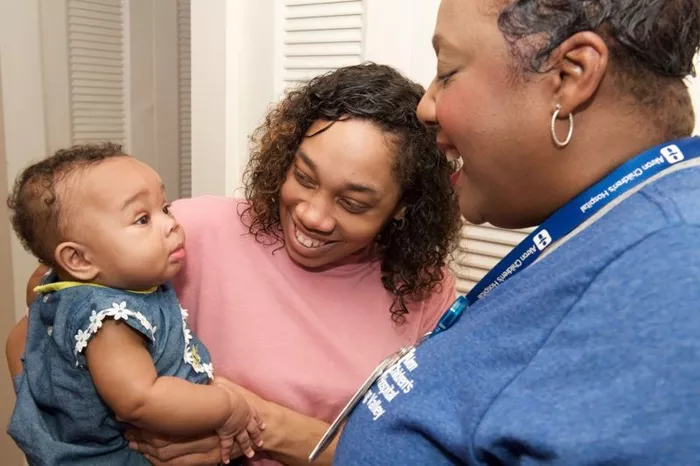NHS to Invest £10m to Address Maternity Inequalities
The NHS has announced a £10 million investment over the next year to reduce healthcare inequalities. This funding aims to enhance midwifery services and provide additional support to women in the most deprived areas.
For Vaishali Bamania, having children is everything. After marrying Rahul, she learned she had cancer while trying to conceive. Vaishali battled and overcame womb cancer, then endured an 18-month IVF journey to conceive.
“We were happy, we felt all our dreams had come true and the 18-month treatment was worth it,” she said. “We thought all of this is behind us now and we can move on and bring a baby home in nine months.”
However, their daughter Jaya was born at 22 weeks on August 19, 2019, and died the same day. “She was born alive. We had 14 minutes with her, and then she stopped breathing,” Vaishali added.
Despite being told she was “high risk” throughout her pregnancy, Vaishali did not receive additional care such as extra scans and blood tests. When she reported unusual symptoms to midwives, her concerns were ignored.
SEE ALSO: What Causes Morning Sickness Not Pregnant?
Vaishali understands that losing a baby is not rare; around 13 babies die shortly before, during, or soon after birth each day in the UK. However, she is appalled by the stark inequalities in outcomes for babies of different ethnicities. “I shouldn’t be more likely to lose my baby because of the color of my skin,” she said. “To know it’s more likely to happen to me or to someone who’s black, because of their ethnicity, it’s just shocking. We are in 2024.”
She has joined other bereaved parents, supported by the Sands charity, in writing an open letter to the newly-formed government, urging them to address these disparities.
Statistics reveal that stillbirth rates are higher for babies of black ethnicity (7.52 per 1,000 total births) and Asian ethnicity (5.15 per 1,000 total births) compared to white babies (3.30 per 1,000 total births). There has been a small increase in stillbirth rates from 2020 for white and Asian babies, but a larger rise for black babies, highlighting a widening inequality.
For neonatal mortality, the rate for black babies increased to 2.94 per 1,000 live births, now the highest among ethnic groups. The rate for Asian babies fell to 2.22 per 1,000 births, while the rate for white babies, though increased, remained lower at 1.68 per 1,000 live births.
“It’s totally unacceptable that there are these disparities,” said Clea Harmer, CEO of Sands. “It sends the saddest and most unacceptable message that babies with different skin colors are not seen as equal or as important as white babies. Any maternity improvement program must address inequalities as part of its overall structure and set specific targets to reduce them.”
An NHS spokesperson stated: “It is unacceptable for black and Asian mothers and their babies to experience disparities in care. While the NHS has made improvements to maternity services over the last decade, much more work is needed to tackle inequalities and ensure all women and families receive high-quality care before, during, and after their pregnancy. We are investing an additional £10 million over the next year to reduce inequalities, including offering enhanced midwifery continuity of carer teams where safe staffing is in place and extra support for women in the most deprived areas who are more likely to experience adverse outcomes during pregnancy and birth.”


